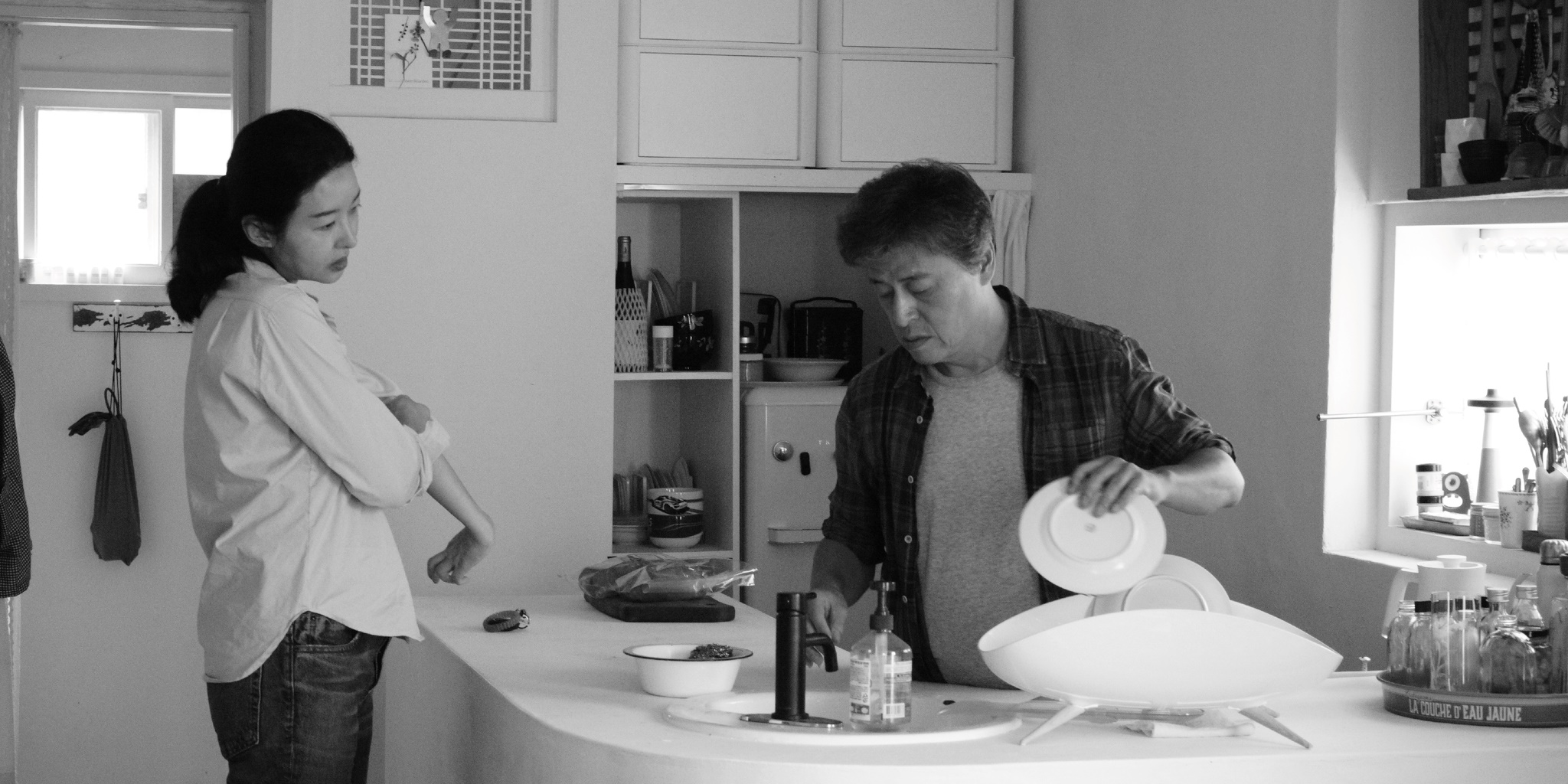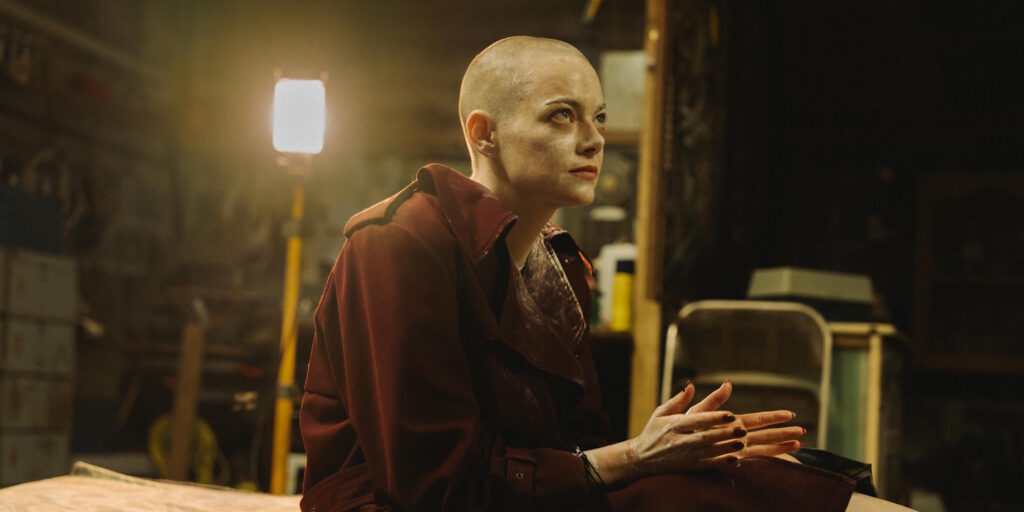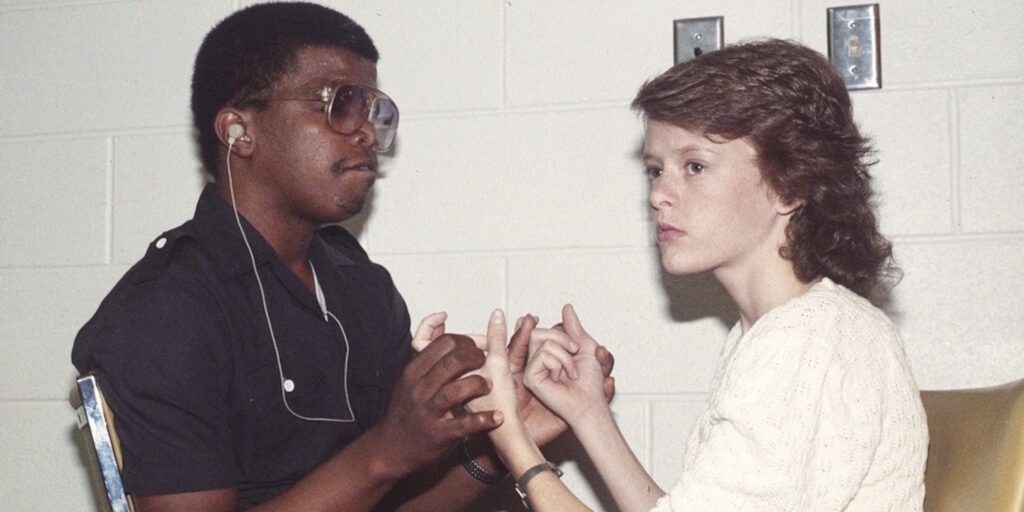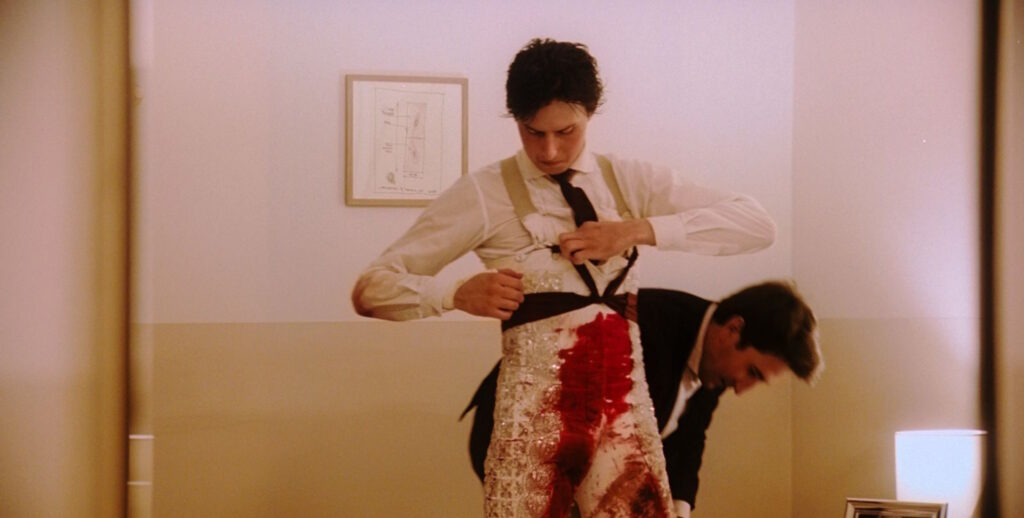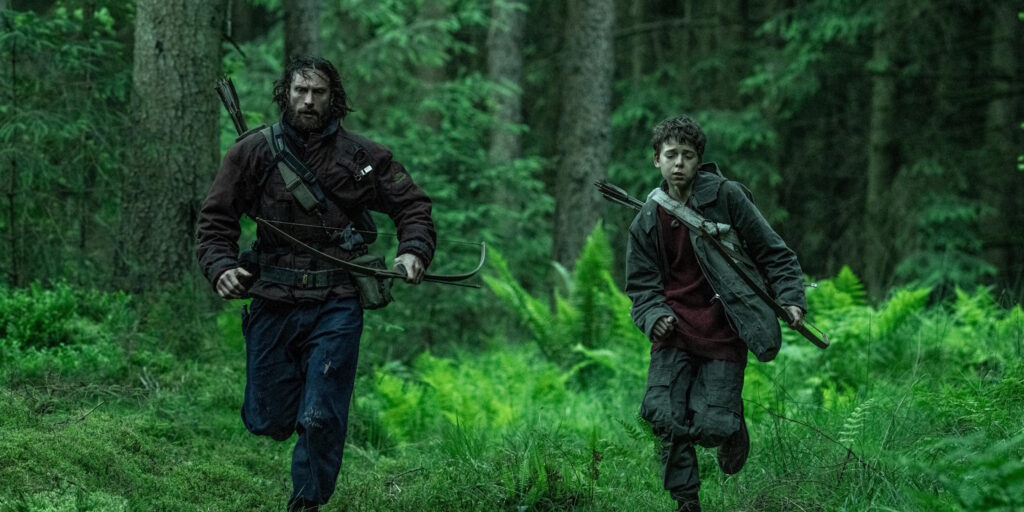To write about a new Hong Sang-soo film is to write about the dozens that came before it. (And, given the director’s prolific output, the ones that have likely arrived in its wake.) To be clear: Walk Up marks the South Korean writer-director-producer-editor-composer’s 28th feature-length project. As it makes its tour across the United States, his 30th preps for a premiere at this year’s Cannes Film Festival. Hong keeps up an unrivaled pace, which is a feat in itself. However, the real accomplishment — and, arguably, the element that keeps Hong Heads (the Hong Hive?) coming back — is the way each new work adds a deeper, more personal layer to the multi-hyphenate artist who oversees nearly every aspect of its production.
Walk Up takes a literal approach to this layering, exclusively taking place in and around a five-story building in Seoul. Filmmaker Byung-soo (Kwon Hae-hyo) and his estranged daughter Jeong-su (Park Mi-so) have arranged to meet with Ms. Kim (Lee Hye-young), the building’s owner and interior designer as well as an old friend of Byung-soo’s. Byung-soo set up this meeting in the hope that Ms. Kim will agree to mentor Jeong-su, who aspires to take up the art of interior design after quitting her former job in a quarter-life crisis of sorts. After touring the building — which consists of a basement studio, a restaurant on the first and second floor, a third-floor apartment, and an attic room with a spacious rooftop hangout — the three eventually settle on the ground floor and share a drink. Naturally, as Hong movies tend to go, this turns into many drinks.
The trio talks about work, the arts, the creative process, relationships … all while downing glass on glass of wine. A business call sends Byung-soo out; a depleted supply of alcohol sends Jeong-su to the convenience store down the street. Then, a musical motif signals a leap forward in time. Suddenly, it’s months later: Byung-soo has returned, his career is headed down an uncertain path, Jeong-su’s (brief) apprenticeship under Ms. Kim has run its course, and the father-daughter duo are no longer on speaking terms. After more conversation, the motif recurs, and we spring ahead once again. Walk Up continues to jump onward and upward like this, with each segment taking place on the floor above the last. It’s an imaginative structure, the sort often employed by Hong, who has been no stranger to wild experiments in narrative storytelling throughout his career.
Looking beyond plot, the cast comprises a handful of Hong regulars (both new and old) who are perfectly attuned to his particular wavelength. Kwon Hae-hyo has been a fixture of his since the delightful In Another Country (2012), and Lee Hye-young is enjoying a remarkable late-career revival thanks to prominent roles in first-rate Hongs In Front of Your Face (2021) and The Novelist’s Film (2022). Meanwhile, Walk Up serves as Park Mi-so’s third collab in a row with the filmmaker. Even the small supporting cast has history with Hong that dates back as far as Woman on the Beach (2006). This arsenal of familiar faces and frequent collaborators is a driving force behind the pure, unadulterated naturalism of Walk Up — not to mention a testament to the close working relationships Hong’s projects are known for between cast and one-man crew.
As he has done time and time again, Hong uses this familiarity in combination with the film’s plot device to bring out the metatextual undertones of the story. (Byung-soo is a director, after all.) As conversations move toward discussions of fandom, legacy, image, perception, or craft, one can’t help but search for indications or clues about Hong’s true feelings on the subjects. However, this is not to suggest that one has to be well versed in the filmmaker’s oeuvre to appreciate what Walk Up is doing. It is quite capable of standing alone (and standing tall, at that). It’s meaningful in its own right, even if one is unaware of its greater meaningfulness in relation to the director’s other 27 features.
Like the film itself (which proves to be quite cyclical by its conclusion), there is virtually no beginning and no end to the list of possible entry points into Hong’s filmography. It doesn’t really matter where one begins — whether it be his early works, his more recent productions as a man of many hats, or somewhere in the middle — but there’s no doubt that continued viewings will only make future watches more rewarding. In light of Walk Up and its trek through the different stages of Byung-soo’s life, it helps to think of film No. 28 as a reminder of where Hong has been and a vision of where he’s headed next: always onward, always upward, and ever transcendent.
Walk-Up screens nightly at 7:30 p.m. on May 5 – 7 at the Webster University Film Series.
